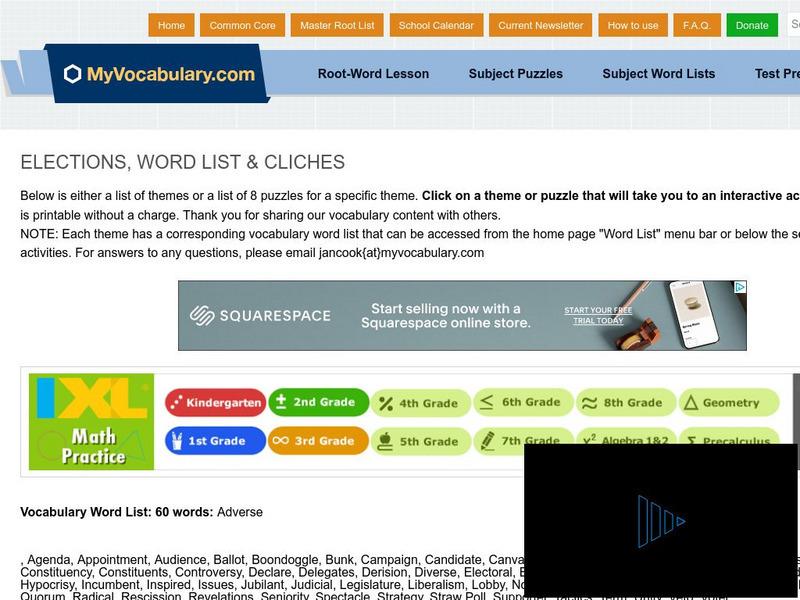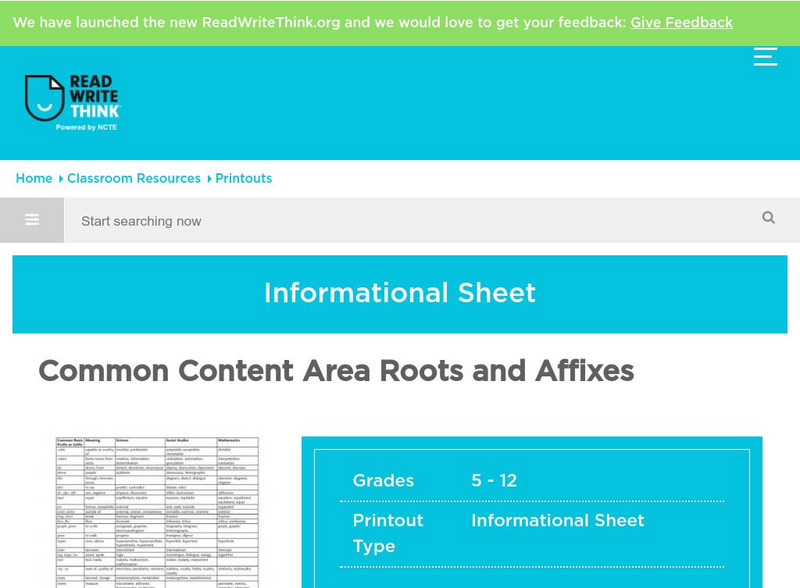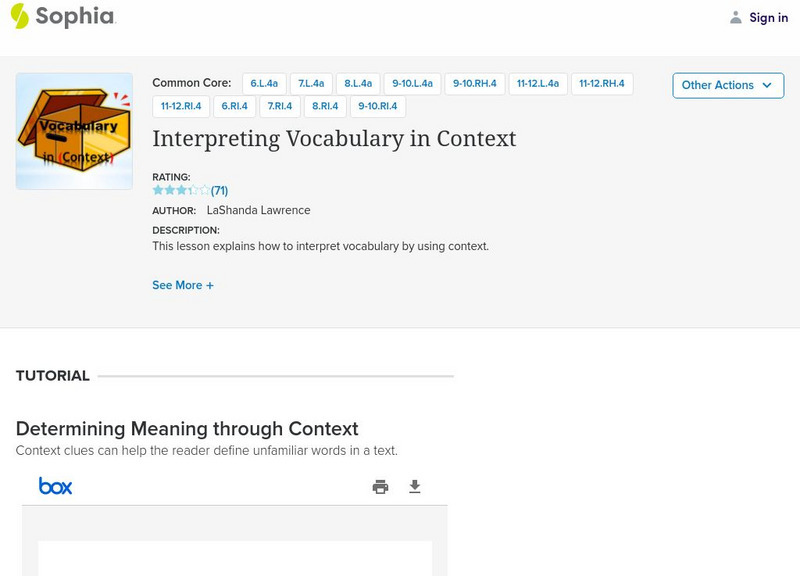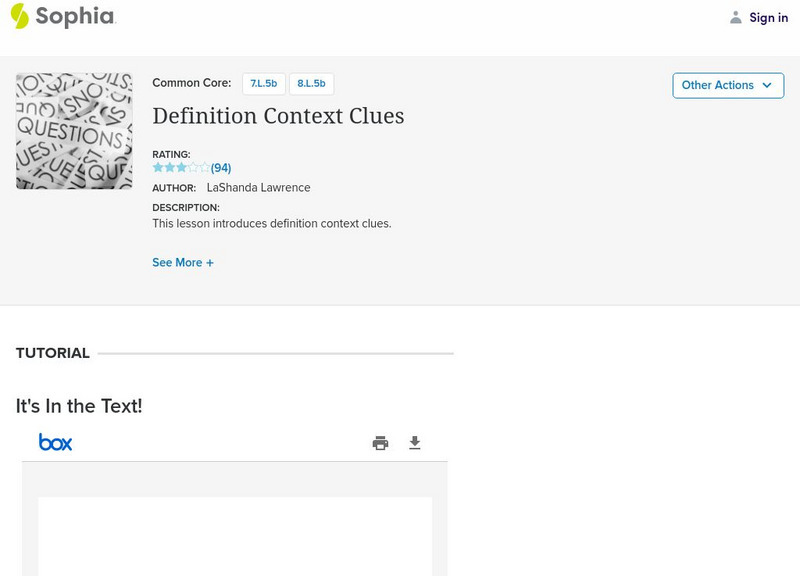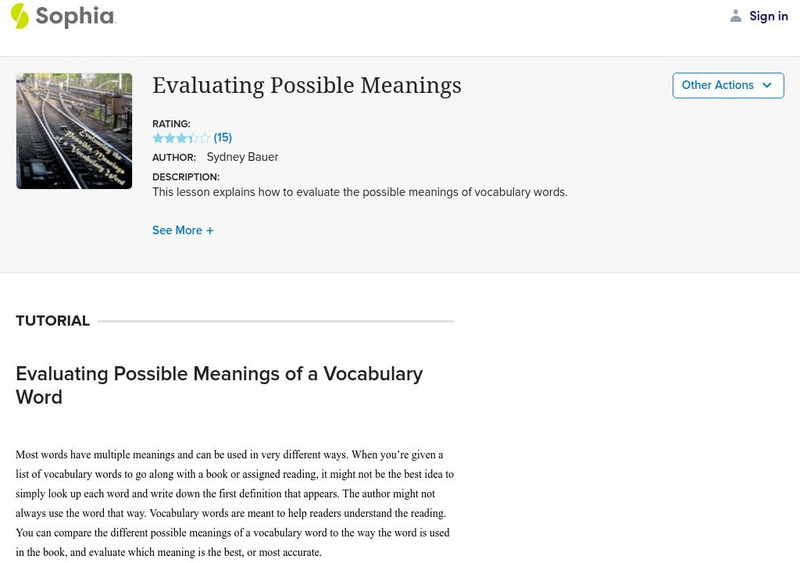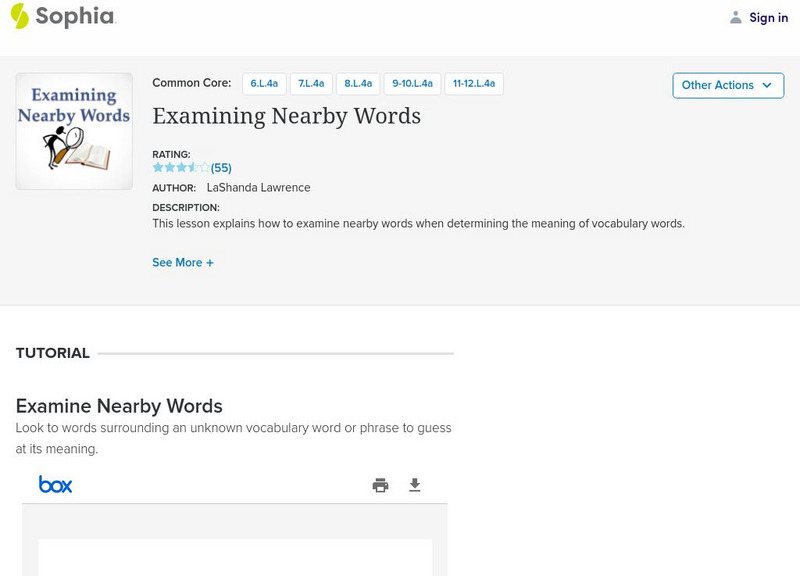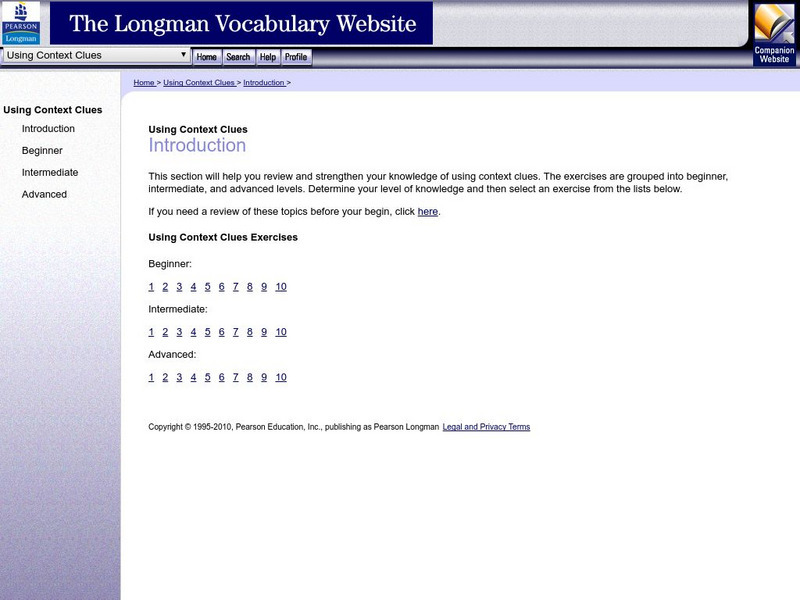English for Everyone
English for Everyone: Sentence Completion 1: Level 11 [Pdf]
English for Everyone provides a printable quiz to assess Level 11 vocabulary. Students will use context clues to place words, or word pairs, into compound, complex, and compound-complex sentences.
English for Everyone
English for Everyone: Sentence Completion 2: Level 11 [Pdf]
English for Everyone provides a printable quiz to assess Level 11 vocabulary. Students will use context clues to place words, or word pairs, into compound, complex, and compound-complex sentences.
English for Everyone
English for Everyone: Sentence Completion 3: Level 11 [Pdf]
English for Everyone provides a printable quiz to assess Level 11 vocabulary. Students will use context clues to place words, or word pairs, into compound, complex, and compound-complex sentences.
English for Everyone
English for Everyone: Sentence Completion 1: Level 12 [Pdf]
English for Everyone provides a printable quiz to assess Level 12 vocabulary. Students will use context clues to place words, or word pairs, into compound, complex, and compound-complex sentences.
English for Everyone
English for Everyone: Sentence Completion 2: Level 12 [Pdf]
English for Everyone provides a printable quiz to assess Level 12 vocabulary. Students will use context clues to place words, or word pairs, into compound, complex, and compound-complex sentences.
English for Everyone
English for Everyone: Sentence Completion 3: Level 12 [Pdf]
English for Everyone provides a printable quiz to assess Level 12 vocabulary. Students will use context clues to place words, or word pairs, into compound, complex, and compound-complex sentences.
Polk Brothers Foundation Center for Urban Education at DePaul University
De Paul University: Center for Urban Education: Can Infer Meaning of Word From Context [Pdf]
Students will find a reference poster that will help students inference. Students will find step-by-step directions to help them infer meanings of new words.
ReadWriteThink
Read Write Think: A Close Reading of Seamus Heaney's "Blackberry Picking"
Contains plans for two lessons that explain an inductive method for analyzing poetry. Seamus Heaney's "Blackberry Picking" is analyzed using this model as an example, although the method can be used on a variety of poems. In addition to...
Other
Uncp: Using a Dictionary
Curious about what a dictionary might tell you beyond how to spell a word? This site will walk you through the basics of using any dictionary, as well as suggest why you might want to consult one on a regular basis. L.9-10.4c References,...
Vocabulary University
My vocabulary.com: Elections, Word List & Cliches
This is a variety of vocabulary puzzles and activities using 60 vocabulary words pertaining to elections. It also offers an extensive Vocabulary Word List for Election (393) and a list of election cliches.
ReadWriteThink
Read Write Think: Common Content Area Roots and Affixes
This table offers 50 or so common roots, prefixes, and suffixes, their definitions, and sample words in the content areas. L.9-10.4b Patterns/word changes
AdLit
Ad lit.org: Key Literacy Component: Morphology
Morphology describes how words are formed from building blocks called morphemes, the smallest unit of meaning in a word. Students who don't understand this structure have trouble recognizing, understanding, and spelling words. Find out...
AdLit
Ad lit.org: Teaching Word Meanings as Concepts
The most effective vocabulary instruction teaches word meanings as concepts; it connects the words being taught with their context and with the students' prior knowledge. Six techniques have proven especially effective: Concept...
Sophia Learning
Sophia: Interpreting Vocabulary in Context
This lesson explains how to interpret vocabulary by using context. L.9-10.4a Context/Meaning, L.11-12.4a Words/Context
Sophia Learning
Sophia: Definition Context Clues
In this slideshow tutorial, students will review the concept of using context clues to comprehend unfamiliar words or phrases in a given text. Types of context clues and their definitions are also included.
Sophia Learning
Sophia: Evaluating the Connotation
This lesson focuses on evaluating the connotation of a vocabulary word. It defines connotation and gives an example. It details three steps: read the word in context, determine the tone of the overall reading, and compare the tone with...
Sophia Learning
Sophia: Evaluating Possible Meanings
This lesson explains how to evaluate the possible meanings of vocabulary words. An audio lesson [3:07] and notes are included in this tutorial. CCSS.ELA-Literacy.CCRA.L.4
Sophia Learning
Sophia: Examining Nearby Words
This lesson explains how to examine nearby words when determining the meaning of vocabulary words. This tutorial lesson shares a short slideshow with the lesson's content. L.11-12.4 Word Meanings, L.11-12.4a Words/Context
Sophia Learning
Sophia: Answering Based on Context
In this slideshow tutorial lesson, students will review how to answer questions based on context clues. Definitions and short examples are provided related to how to find context clues and then apply the textual evidence to reading...
Savvas Learning
Pearson Education: The Longman Vocabulary Website: Using Context Clues
Discover how to use context clues to improve your reading skills. This resource features exercises for beginners, intermediate and advanced students. L.9-10.4a, L.8.2.B Context/Meaning
Texas Education Agency
Texas Gateway: Reference Materials Printed and Electronic
Learn how to use dictionaries, glossaries, and thesauri in order to determine meanings of words and phrases, including their denotations, connotations, and etymologies.
Texas Education Agency
Texas Gateway: Applying Word Study Strategies (English I Reading)
Apply previous lessons, (1) Linguistic Roots and Affixes, (2) Denotation and Connotation, (3) Origins and Meanings of Foreign Words, (4) Cognates, and (5) Reference Materials, to improve fluency and comprehension.
Texas Education Agency
Texas Gateway: Annotate for Meaning (English I Reading)
Learn how to annotate or mark a text as you read and re-read to gain a deeper understanding of the text.
Texas Education Agency
Texas Gateway: Denotation and Connotation (English Ii Reading)
You will be able to distinguish between the denotative (dictionary) meaning of a word and its connotative (emotions or associations that are implied rather than literal) meaning. L.9-10.5b nuances


![English for Everyone: Sentence Completion 1: Level 11 [Pdf] Unknown Type English for Everyone: Sentence Completion 1: Level 11 [Pdf] Unknown Type](https://d15y2dacu3jp90.cloudfront.net/images/attachment_defaults/resource/large/FPO-knovation.png)


